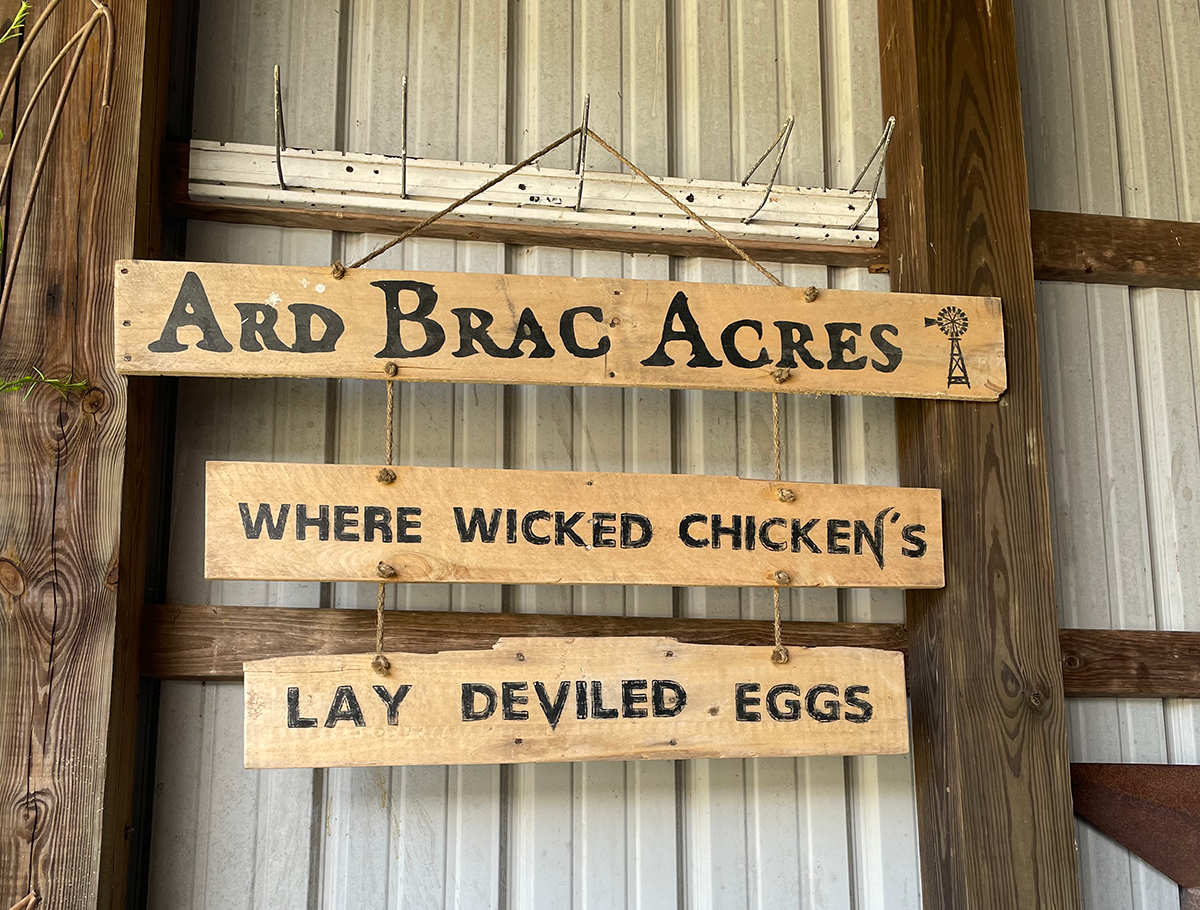Green Reads Goes on a Field Trip!


 On July 17 we went on a field trip to Ard Brac Acres, a small regenerative farm in Pittsville, Maryland on the Eastern Shore. The inspiration for checking out a regenerative farm came from reading The Omnivore’s Dilemma where we were introduced to the methods of Joel Salatin. We were curious about how the operations might differ from a typical farm. Amanda, the owner and operator of the farm, with the help of her husband and two sons, is juggling multiple roles and responsibilities.
On July 17 we went on a field trip to Ard Brac Acres, a small regenerative farm in Pittsville, Maryland on the Eastern Shore. The inspiration for checking out a regenerative farm came from reading The Omnivore’s Dilemma where we were introduced to the methods of Joel Salatin. We were curious about how the operations might differ from a typical farm. Amanda, the owner and operator of the farm, with the help of her husband and two sons, is juggling multiple roles and responsibilities.
She kindly took the time to give us an extensive tour of their small operation. This is just the fourth year for them at their current location, so they are still getting established and growing. We all felt that we benefited from seeing a young farm as their processes are still being worked out and they are still discovering new possibilities.


They are growing a varied selection of fruits and vegetables including strawberries, blueberries, three kinds of kale, onions, shallots, cabbage, tomatoes, corn, squash, and pumpkins. Amanda is currently planning another crop of strawberries. The chickens provide eggs, and their litter fertilizes the fields as the farmers move the chickens from field to field in large, moveable crates they call chicken tractors. Other chickens are slaughtered on the farm and Amanda showed us the mechanics of their process.
Adorable little chicks are living safely in the greenhouse until they are old enough to join the others. A couple of “intellectually challenged” turkeys hang out with the chickens until Thanksgiving.
They have started the endeavor of raising goats that are entertaining to watch.


The pigs are raised for slaughter. We saw six large ones that have become food aggressive and were destined for the slaughterhouses within days while there is a separate area for the younger ones who can’t compete with the older pigs for food. They are fed both purchased feed and anything in the fields that can’t be sold. Overall, all of the animals seem to be treated as humanely as possible since they are not contained in an industrial agricultural setting.

However, this experience provoked my discomfort by recognizing the lack of connection that we generally have to the animals we eat; I inch even closer to a fully vegetarian diet. Not everyone in our group shared by my thoughts in this regard.
The soil looked great, and the produce looked and tasted fantastic. Our group enjoyed tasting the blueberries and kale and felt fortunate to purchase freshly picked blueberries, eggs, pork, chicken, and scrapple before departing. Amanda maintains a small CSA (Community Supported Agriculture – a case of available food supplied weekly as a subscription) for those who are local and also has a market and a street-side stand on Sundays.
We all thought that a side trip when traveling to or from the beaches would be a detour well worth making to stock up on all that she offered. Amanda’s entrepreneurial spirit should serve her well in making Ard Brac Acres a success. If you happen to be looking for sustainably harvested food on the Eastern Shore, we would recommend that you stop at this small business along the way. More about the farm.
Our next book, for July reading, is Edward Abbey’s The Monkey Wrench Gang. This book of fiction is an entertaining summer read. Although our Green Reads “gang” isn’t up to much mayhem, if you’d like to join our environmental book group, please contact me.
Happy Reading,
Karen Grumbles
